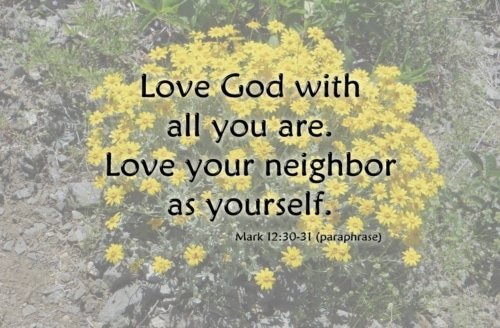

In an earlier post, I suggested that God chose the shedding of Jesus’ blood on the cross as the means of forgiveness. Not because it was the only way. But because it was the way he wanted. It was a way to salvation that was offensive to some and foolish to others (1 Cor. 1:21-25).
But why would he do that? Why make it so hard? If he wanted all to be saved (1 Tim. 2:4, 2 Pet. 3:9), why choose a way that most would reject? Why not provide a means of salvation that more would accept?
What Does God Want?
To answer that, it is necessary first to understand what God really wants. If all he wants is for us to believe that he exists and to worship him as God, all he would have to do is reveal himself to us in an undeniable way. However, he did that for Israel during the Exodus, to little avail. Or he could have created us in such a way that we would have had no choice but to believe.
If God wanted moral perfection from us, he certainly could have created us without the capacity to sin. But he did just the opposite. Regardless of what he tells us to do, we invariably do the opposite. From the Garden story to our own day, humanity nearly always does what we want rather than obeying God.
We get a clue of what God wants in Hebrews 11:6: “And without faith it is impossible to please God.” God wants us to respond to him in faith. Clear and undeniable proof of God’s existence is not compatible with faith. Nor is being created with no alternative but to believe.
What Is Faith?
According to Vine’s Complete Expository Dictionary, “the main elements of faith are (1) a firm conviction, producing a full acknowledgement of God’s revelation or truth, e.g., 2 Thess. 2:11-12; (2) a personal surrender to Him, John 1:12; (3) a conduct inspired by such surrender, 2 Cor. 5:7.”
The examples found in Hebrews 11 all equate faith with action, and they generally have a forward-looking view. Faith is not based on what you can see. It is a conviction of what you cannot see and an assurance of what you are hoping for (Heb. 11:1). Faith is a small child throwing themselves off a roof, confident that their dad will catch them.
The Role of Faith
I used to have a vegetable garden. My desire was that every bean, tomato, ear of corn, and pepper would turn out perfect. Unfortunately, I never achieved that success rate. Invariably, some of them would be unusable and would end up in the compost pile.
I believe that, in some way, this illustrates what God is doing. He desires that all people be saved. But only on his own terms. Salvation is a gift of God’s grace, freely given and available to all people. However, it is only given to those who receive it through faith. Those who will lay down their lives, take up their cross, and follow Jesus (Matt. 16:24)—who will accept the foolishness of the cross as the way to eternal life.
Is This Fair to Those Without Faith?
Some do not have faith. Or at least choose not to exercise it. Are they doomed to an eternity of torment? Or do they just die and are gone?
The fate of those without faith will be the topic of another post. But what about the question of fairness? Is it unfair of God to require faith on our behalf in order to be saved?
The issue of fairness is a tricky one. Some have heard the gospel, while others have never had the opportunity. Is it fair of God to expect those who have not heard to believe in the crucified Jesus?
I believe God is just, which implies fairness, although not necessarily in the way we would typically understand it. The Scripture tells us that the creation itself bears witness to God, leaving us without excuse (Rom. 1:18-20). So, everyone has at least some limited revelation of God. Jesus, before he went to the cross, said that he would draw all people to himself (John 12:32). And, in Luke 12:47-48, Jesus told us that we are only held accountable for what we have been given.
I do not know what God will do with those who have never heard and yet are responsive to what they have been given—who respond in faith to the limited revelation they have. But I do trust that God is just and will do what is best.
A New Creation
But none of this really answers why God made it so hard. And I do not believe the Scripture really gives us an answer. So, what follows here are just my own thoughts.
Genesis 2 paints a picture of a garden paradise that was the home to our first parents. It had everything they could ever want, including God’s presence with them. They were only given one restriction. Don’t eat from one tree in the center of the garden.
And of course, they ate from it and were cast from the garden. But why did they eat? It was an act of disobedience. But what led them to disobey? I believe it came down to a lack of trust. The serpent convinced them that God was holding out on them. They were unwilling to trust that God had their best interests in mind.
The story of the Bible ends in a new creation. A creation populated by people who have demonstrated that they will trust God, even when another way might seem better. And that, I suspect, is why God makes it so hard. To separate the wheat from the chaff (Matt. 3:11-12).
Related Posts
The post Why Make It So Hard? appeared first on A Clay Jar.


